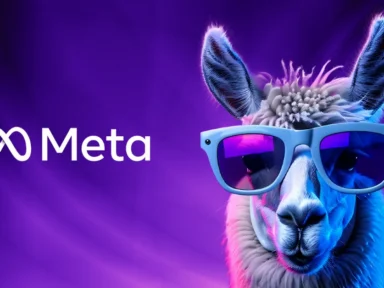Revolutionizing AI Development with Azure: Unleashing AI Innovation
TL;DRAzure has never been more transformative for AI development. This innovative platform offers unparalleled capabilities in generative AI, conversational orchestration, and model customization, making it an essential choice for enterprises and developers alike. Discover how Azure can revolutionize your approach to AI with cutting-edge features like Azure AI Studio, which provides a nearly complete toolbox for AI development using OpenAI models, and Copilot Studio, which enables the creation of custom AI solutions with ease. Whether you're building complex AI applications or streamlining processes with Azure Cognitive Services, this tool stands out in its field, offering advanced features such as semantic search, vector indexing, and integration with other Azure services. Explore the benefits of using Azure Open AI, which includes lower latency and robust data privacy features, perfect for large companies looking to leverage AI technology securely. With its ease of use, extensive documentation, and powerful tools like Form Recognizer and Optical Character Recognizer, Azure is poised to transform the way you develop and deploy AI solutions.
2018-10-02
Unlocking AI Excellence with Azure OpenAI
Azure OpenAI is a transformative AI tool that significantly simplifies and enhances various processes by integrating advanced AI capabilities seamlessly with Microsoft Azure. This cutting-edge service offers a robust solution for tasks like understanding human language, recognizing images, and more, making it an indispensable asset for enterprises looking to leverage the power of generative AI. One of the unique benefits of Azure OpenAI is its ability to provide consistent and secure AI solutions. By hosting models in Azure, it ensures data privacy and security, which is a significant IP and privacy concern for large companies. Additionally, Azure OpenAI offers lower latency compared to public OpenAI, making it a preferred choice for enterprises that require high-performance AI applications. To provide a more in-depth understanding, here are 8 key features that make Azure OpenAI an essential tool for AI development:
Azure seamlessly integrates with OpenAI models, offering users access to advanced AI capabilities like GPT-4, which enhances the accuracy and functionality of AI applications. This integration is particularly beneficial for enterprises looking to leverage AI without worrying about data privacy and model retraining concerns.
Azure AI Studio provides a comprehensive platform for developing custom AI solutions. Users can choose from a wide range of models, including those from Microsoft Research, Meta, Hugging Face, and OpenAI, and customize them to suit specific needs. This flexibility is crucial for building complex AI applications.
Azure AI Studio supports advanced prompt engineering and Retrieval-Augmented Generation (RAG) techniques, which help in grounding AI models with vector embeddings and vector search. This feature is essential for creating more accurate and contextually relevant AI outputs.
The platform offers fine-tuning capabilities for AI models, allowing users to adjust the models to their specific application requirements. This feature is particularly useful for achieving optimal performance in various AI tasks.
Azure provides robust content safety features through the Content Safety Studio, which enables users to moderate text and image content, filter generative AI for jailbreak risk, and construct metaprompts for safety. This ensures that AI applications are used responsibly and safely.
Azure supports multi-cloud environments, making it a preferred choice for customers who use AWS and Google Cloud. This compatibility is crucial for organizations with diverse cloud strategies.
Azure Open AI services often offer lower latency compared to public OpenAI services, making them more suitable for real-time applications. Additionally, the Platform Tier Upgrade (PTU) provides consistent latency, which is beneficial for applications requiring stable performance.
Azure provides decent support for its Open AI services via the Open AI Python SDK, making it easier for developers to integrate AI capabilities into their applications. However, some users suggest that the Node SDK could benefit from updates for better compatibility.
- Easy to use and integrates well with other Azure services, making it a seamless experience for developers.
- Provides advanced AI tools for tasks like understanding human language, recognizing images, and more.
- Offers a private and secure chat experience for enterprises, addressing IP and privacy concerns.
- Supports multi-cloud customers and provides competitive features like content filters, networking, and monitoring.
- Includes a wide selection of models from multiple vendors, including OpenAI, Meta, Hugging Face, and Microsoft Research.
- Rate limits are low, leading to frequent errors, especially for small-scale users.
- Implementation can be challenging due to the complexity of the Azure Studio and portal.
- Limited support and resources for understanding the benefits and usage of the technology.
- Content filters can be overly strict, impacting the usability of the tool.
- High cost for fine-tuning models, which can be a significant expense for enterprises.
Pricing
Azure offers a free tier with over 25 services for 12 months, including a $200 credit for the first 30 days. The pay-as-you-go model allows users to pay only for the services they use, based on actual usage. Reserved instances provide discounts of up to 72% for one or three-year commitments. The Azure Savings Plan for compute offers up to 65% savings compared to pay-as-you-go prices. Additionally, Azure Hybrid Benefit allows users to apply existing Windows Server or SQL Server licenses to achieve cost savings of up to 85%. The free tier is ideal for exploration and testing, while the pay-as-you-go model provides flexibility for varying needs. Reserved instances and the savings plan are suitable for applications with stable usage and those seeking long-term cost optimization.
Freemium
TL;DR
Because you have little time, here's the mega short summary of this tool.Azure AI offers a comprehensive AI platform with tools like Azure Machine Learning, Azure Bot Service, and Text Analytics, providing seamless integration with various Azure services. It empowers developers to build intelligent applications with features such as automated machine learning, robust collaboration, and scalability, making it a valuable tool for AI development and deployment, particularly in industries like healthcare and finance.
FAQ
Azure OpenAI offers advanced AI tools for tasks like understanding human language, recognizing images, and more. It integrates seamlessly with other Azure services, providing robust content filters, networking, and monitoring capabilities. Additionally, it supports sentiment analysis, key phrase extraction, and entity recognition through Azure NLP and LUIS.
Azure OpenAI uses the same models as OpenAI but often provides lower latency and better performance due to its integration with Azure services. It also offers additional enterprise features like content filters and enhanced security measures, making it suitable for large companies.
Azure OpenAI is commonly used for internal applications such as HR chatbots, knowledge mining, and customer-facing chatbots. It is also used in multi-cloud environments for tasks like sentiment analysis, image recognition, and conversational orchestration.
One of the main limitations is the rate limits, which can be restrictive for high-traffic applications. Additionally, the implementation can be challenging due to the complexity of the Azure Studio and portal, requiring extensive documentation and support.
Azure OpenAI ensures data privacy by encrypting and routing requests to the OpenAI backend. It also provides robust data management and processing pipelines, ensuring that data is secure and compliant with enterprise standards.


 Skip to content
Skip to content














How would you rate Azure?